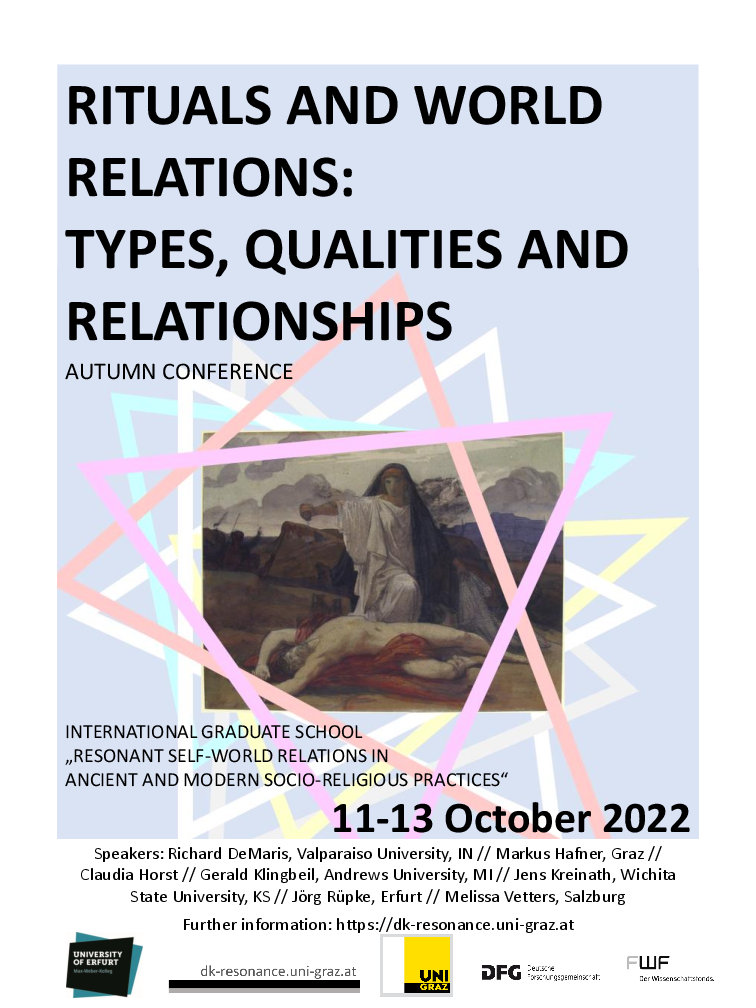11.10. - 13.10.2022
Rituals structure human action and offer orientation in a world full of contingencies in a long-term perspective. Individuals and groups invent and use rituals and persistent socio-religious practices to contact and position themselves in relation to their environment, their fellow humans, other groups, or transcendent beings and ideas. Rituals are – to a certain extent – fixed courses of action that enable such communication and positioning. It is often postulated that rituals must not change in order to be effective. However, rituals are only enduring and persisting because they are transformed, re-created and adapted to new situations and changing environments.
The conference will focus on rituals, their types and qualities to examine how and with which components they determine the relationship of an individual or a collective to its environment. It inquires into the kind of relationships that are established or made possible by ritual actions between people, things (objects, images, texts, music) and the world. These relationships can, for example, establish and stabilize hierarchies, avoid conflicts, stabilize or renegotiate roles, or structure time. To this aim, the following questions arise:
- Which qualities of a ritual (symbolism, performativity, resonance, redundancy) must be present or remain so that people can experience them as helpful for their self-image and self-positioning?
- How can the effectiveness of a ritual be measured? Are gradations of effectiveness, variants of rituals conceivable and who determines whether they are valid?
- At which points in the performance of rituals are changes and adaptations possible? How can the performers implement them? Which social power relations reflect such changes?
- What kind of medial thematization do rituals experience in narratives, texts, music and image objects? How do they mediate, promote and prevent acceptance and certainty of the (still valid) effect? How do rituals themselves and their representations relate to processes of sacralization of persons, things and places?
- How and through which qualities of rituals practiced by individuals, social groups and societies can temporal boundaries (over generations), material boundaries (through symbols) or spatial boundaries (through transfer) be crossed?
The discussion of these questions is intended to open up new perspectives on the relationship of rituals and socio-religious practices to (changing) world relations of individuals or groups – not only from an anthropological or religious studies point of view, but also from a historical and sociological perspective.
Venues:
Tuesday: Aula, Hauptgebäude
Wednesday: before noon: HS 111.21, Beethovenstr. 8
after noon: SZ 15.22, ReSoWi, Bauteil G
Thursday: HS 02.21, Universitätsplatz 2
